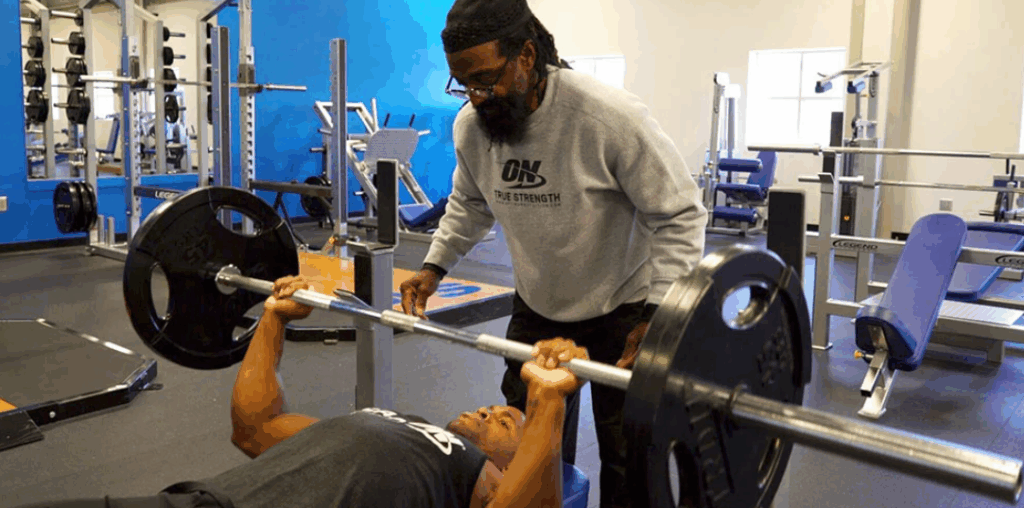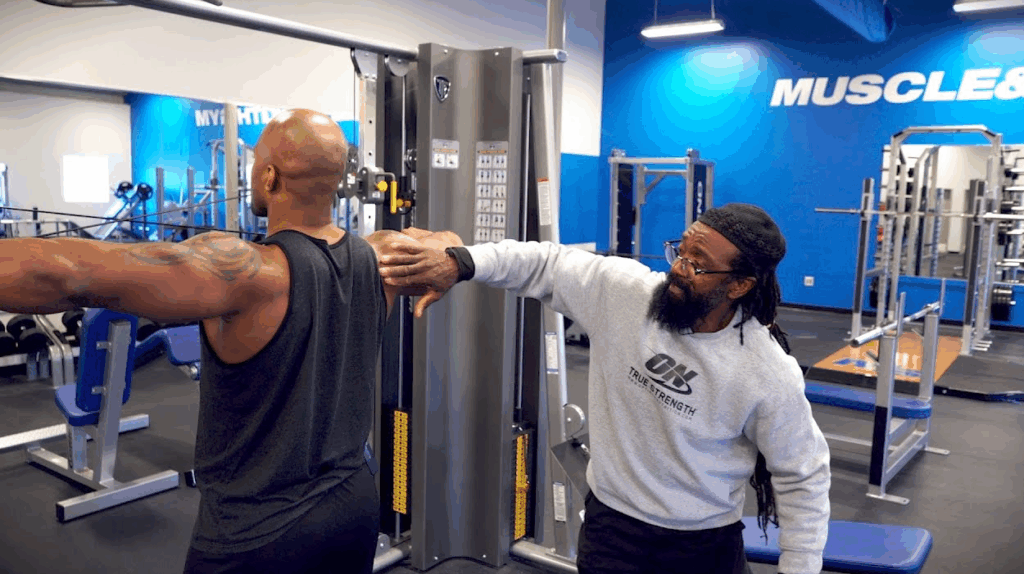Charles Glass, a renowned bodybuilding coach, strongly advises against the barbell bench press due to its poor biomechanics and high risk of shoulder injuries. He argues that this traditional movement often fails to target chest muscles while placing undue stress on joints. Instead, Glass recommends alternatives like dumbbell presses, cable crossovers, and machine work that respect individual body structures.
His clients have built impressive physiques without this popular exercise, proving his philosophy prioritizes longevity and results over gym traditions.
The Exercise Charles Glass Never Programs (And Why)
But despite his legendary reputation for knowing which exercises suit each body type best, Charles Glass is actually quite critical of the barbell bench press. The bodybuilding coach believes this common move places unnecessary stress on shoulder joints and fails to target chest muscles because lifters often have poor biomechanics.
Glass’s exercise selection philosophy places injury prevention above blindly following gym traditions. Many athletes develop shoulder problems from years of heavy flat benching with improper form. He suggests replacing chest training with dumbbell presses and machine work.
That approach demonstrates why Glass is still influential. He knows that sustainable muscle development requires exercises that complement your structure rather than forcing your body into standardized movements.

The Biomechanical Reasoning Behind Glass’s Controversial Choice
Glass’s opposition to the barbell bench press stems from fundamental biomechanical principles that many lifters overlook. With this popular strength training move, your shoulders create uneven stress distribution across the joint complex.
This biomechanical disadvantage makes your shoulders rotate internally while bearing a great load. Those mechanics often cause muscle imbalances between the anterior and posterior deltoid, which compromise long-term shoulder health.
His training methods emphasize proper form that respects individual body structures. Glass typically favors dumbbells or machines that allow natural movement patterns, keeping tension on the target muscles while reducing joint strain, and biomechanical efficiency that prioritizes longevity over ego lifting.
Superior Alternatives Recommended by the Bodybuilding Godfather
Instead of dumping the barbell bench press altogether, Charles Glass suggests several better alternatives that promote comparable muscle development with less risk of injury. The bodybuilding legend suggests dumbbell presses, which move your arms naturally and engage your stabilizer muscles better.
Cable crossovers and machine presses are good substitutes that maintain the movement’s tension throughout, according to Glass’s training philosophy. In his workouts, you’ll also find incline work prominent. It targets upper chest fibers while reducing shoulder strain.
His fitness advice always stresses controlled execution over heavy weights. You’ll keep progressing without the joint stress of traditional barbell pressing by using these smarter alternatives.

Results Without This Popular Movement
Through decades of training, Charles Glass has built a solid portfolio of client success stories. All without the barbell bench press. Those transformations are legendary among fitness enthusiasts who know that skipping this popular exercise does not slow progress.
Many professional bodybuilders working with Glass have dropped the bench press in favor of his alternative chest movements. The results speak for themselves: more symmetrical sculptures with fewer injuries. In bodybuilding history, this approach has changed athlete performance.
Most of Glass’s clients report better-balanced chest development and less shoulder pain. They succeed in showing that sometimes the best strategy is not following convention but understanding biomechanics and making smarter exercise selections.
Implementing Glass’s Principles in Your Training Regimen
When adapting Charles Glass’s training philosophy to your workout program, begin by evaluating your current chest routine with a critical eye. Focus on exercises that provide ideal stimulation of targeted muscles without unnecessary joint strain.
Replace the behind-the-neck lat pulldown with Glass’s preferred alternatives, like front pulldowns or seated rows. Perfect form should always come before heavier weights during weightlifting sessions, especially for compound movements. The mind-muscle connection is what Glass emphasizes. Focus on feeling each contraction rather than moving the weight.
Record your workouts to track progress and identify which movements truly build muscle versus those causing discomfort. Remember that Glass’s approach isn’t about avoiding challenge but creating sustainable training that builds your physique while preserving joint health for decades of consistent gains.

Frequently Asked Questions
How Does Charles Glass Modify Exercises for Different Body Types?
Glass modifies exercises based on your unique structure and mechanics. He’ll adjust grip widths, foot positioning, and angles to optimize muscle engagement while reducing joint stress for your specific body type.
What Supplements Does Charles Glass Recommend for Optimal Muscle Growth?
While Charles Glass hasn’t extensively published his supplement recommendations, he typically emphasizes protein, creatine, BCAAs, and glutamine. You’ll benefit most from focusing on nutrition fundamentals before adding these targeted supplements to your regimen.
How Often Does Glass Recommend Changing Workout Routines?
Charles Glass recommends you change your workout every 4-6 weeks. He believes your muscles adapt quickly, so you’ll need routine adjustments to maintain growth and prevent plateaus in your training progress.
What’s Glass’s Approach to Cardio Training for Bodybuilders?
Glass advocates strategic, moderate cardio for bodybuilders, focusing on low-intensity sessions that preserve muscle mass. You’ll benefit from his approach of short, targeted cardio workouts performed separately from weight training sessions.
How Does Glass Program Training for Natural Versus Enhanced Athletes?
Glass tailors your program based on recovery capacity. If you’re natural, he’ll emphasize longer rest periods and fewer training sessions. For enhanced athletes, he’ll program higher volume and frequency to maximize your pharmacological advantages.







